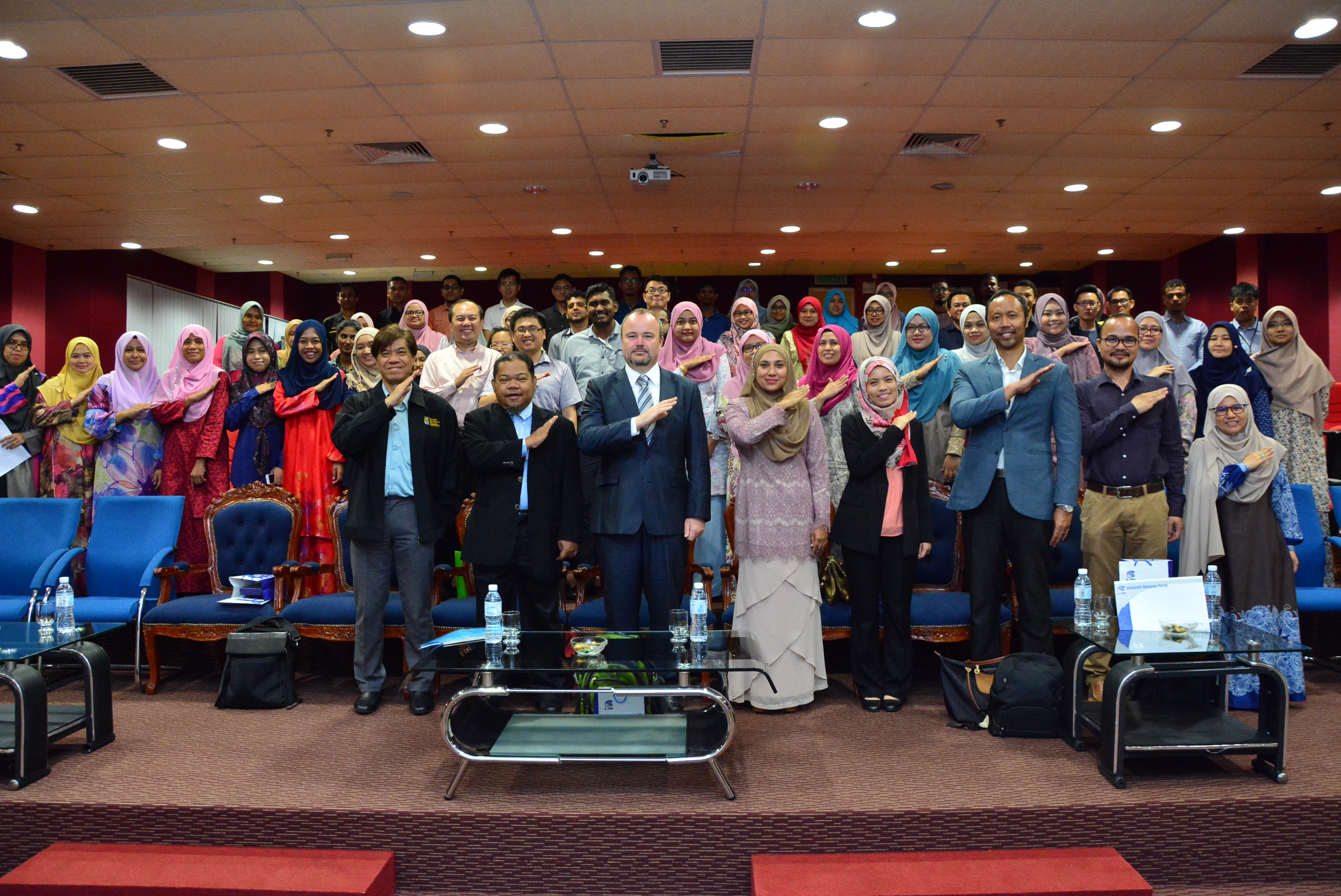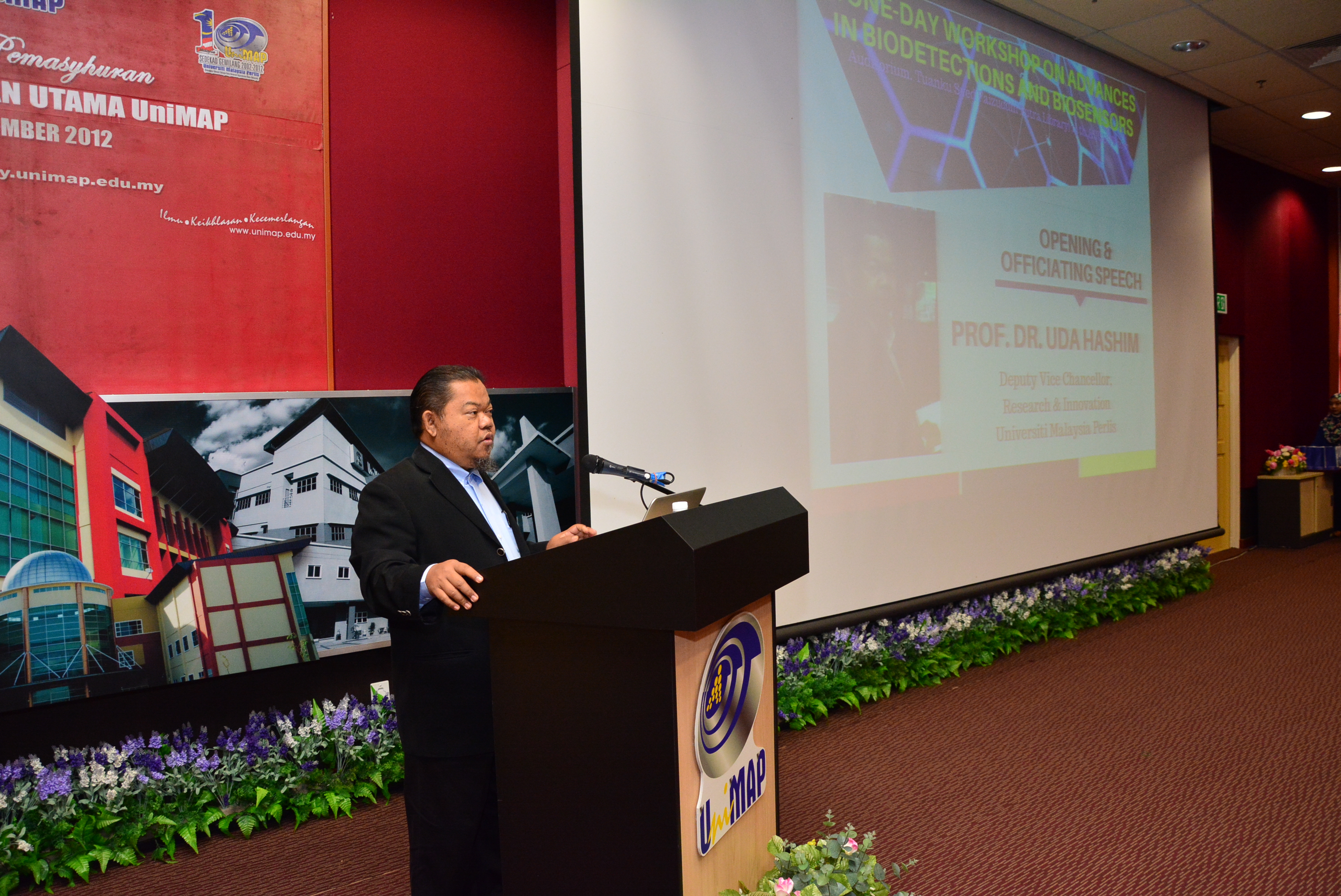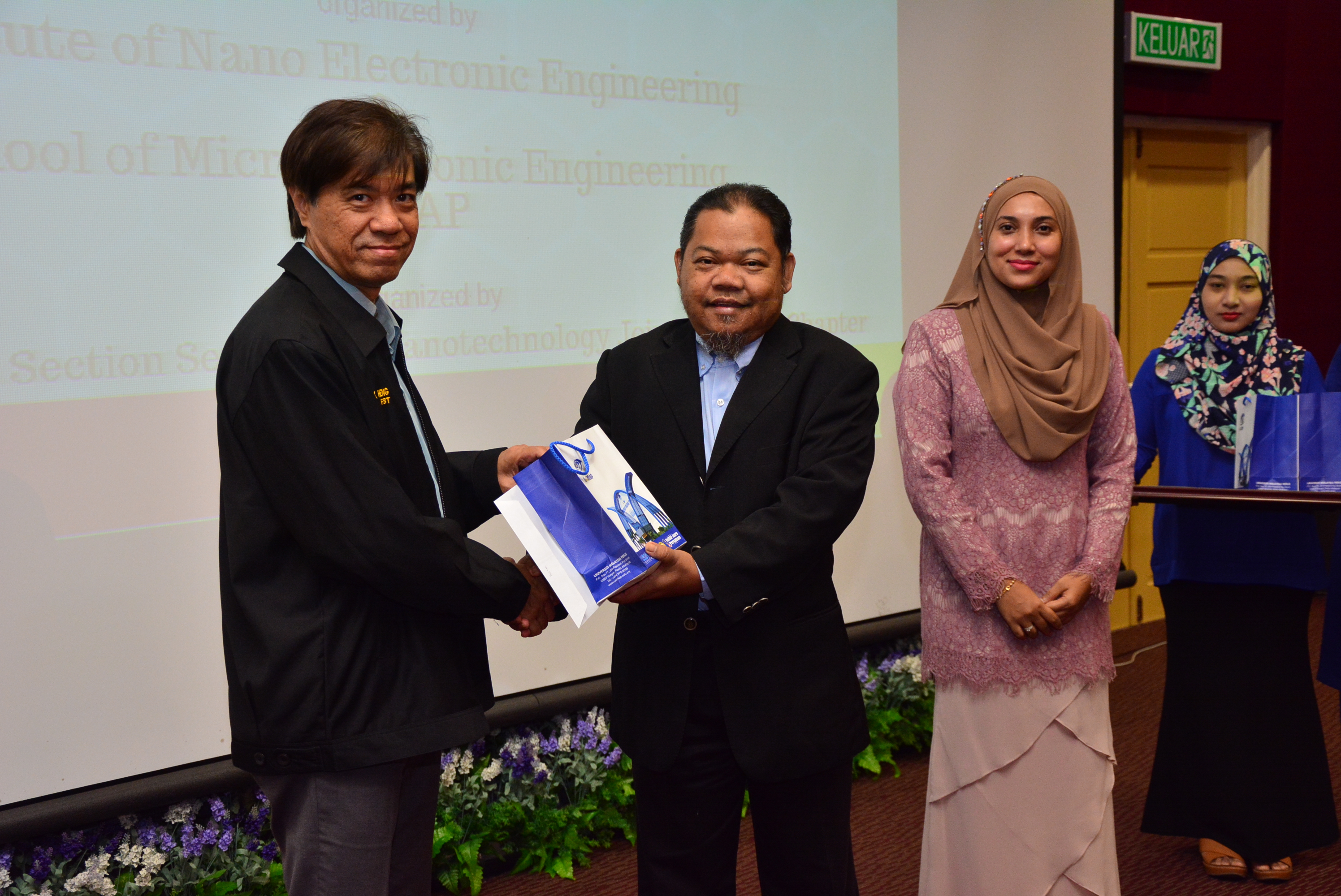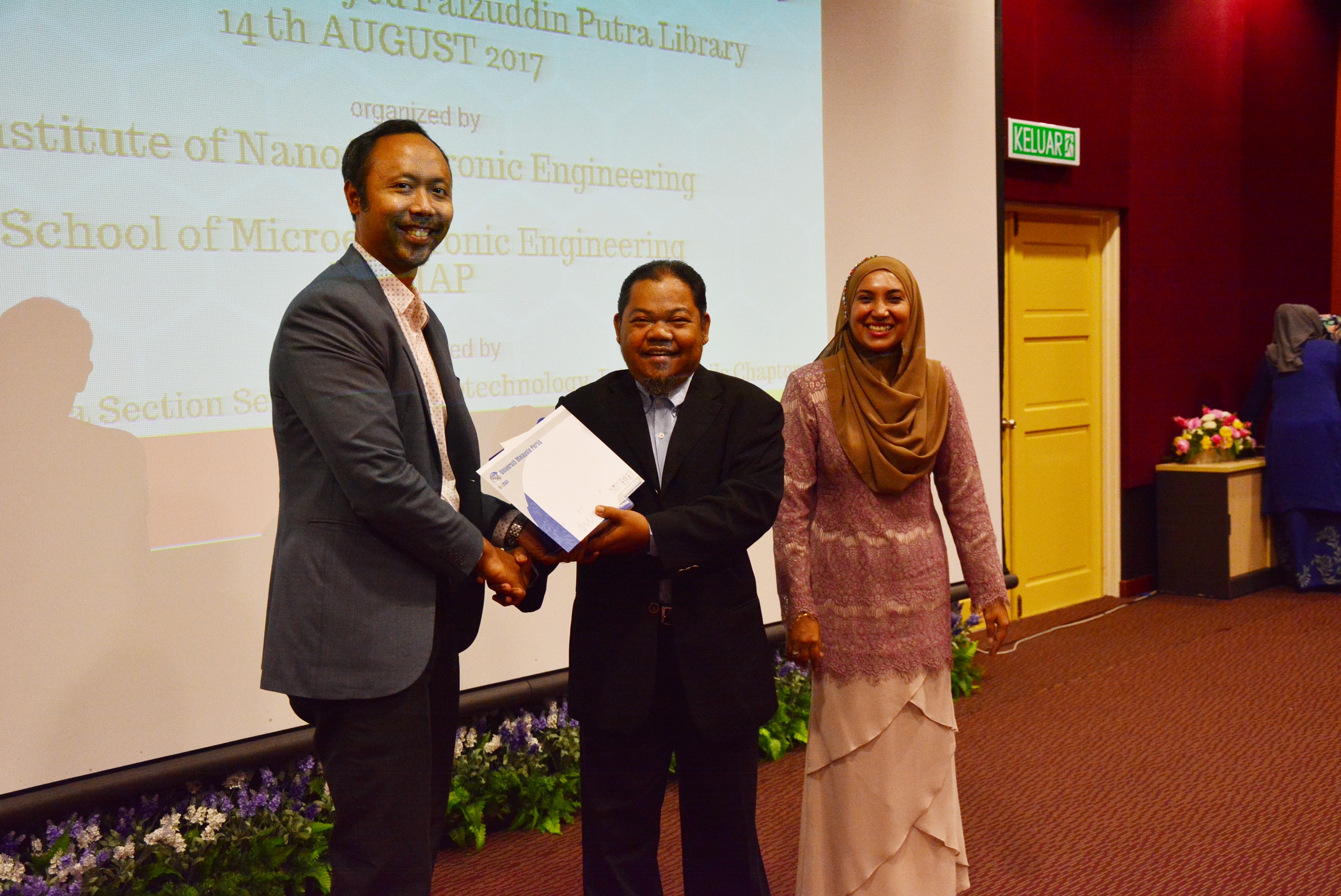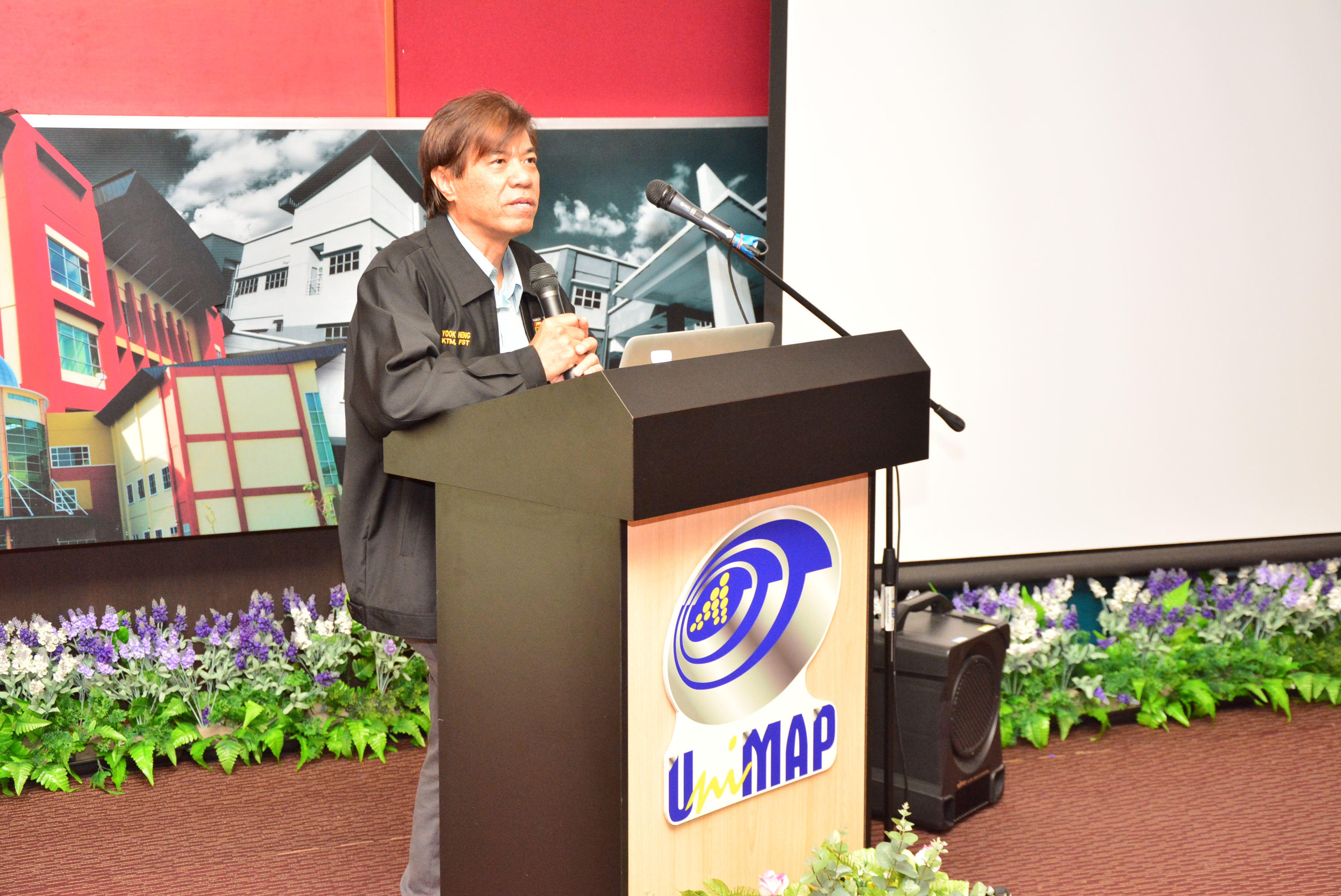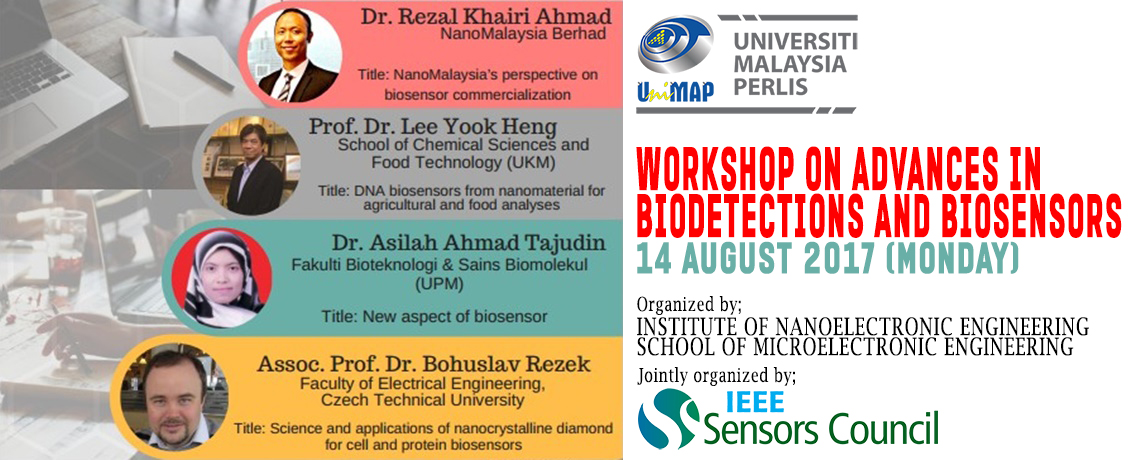
A one-day Workshop on Advances in Biodetections and Biosensors at Auditorium, Tuanku Syed Faizuddin Putra Library, Universiti Malaysia Perlis on 14th August 2017.
Speaker 1: Assoc. Prof. Dr. Bohuslav Rezek from Faculty of Electrical Engineering, Czech Technical University.
Speaker 2: Prof. Dr. Lee Yook Heng from School of Chemical Sciences and Food Technology, Universiti Kebangsaan Malaysia.
Speaker 3: Dr. Asilah Ahmad Tajudin from Faculty of Biotechnology and Biomolecular Sciences, Universiti Putra Malaysia.
Speaker 4: Dr. Rezal Khairi Ahmad, CEO of NanoMalaysia Berhad.
